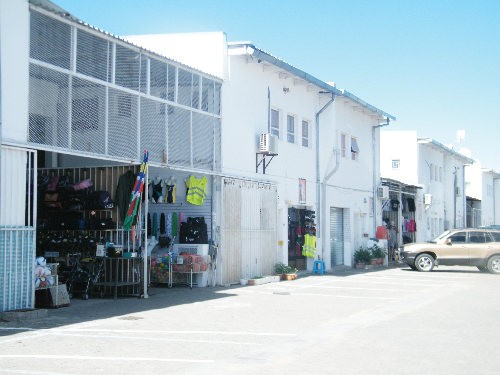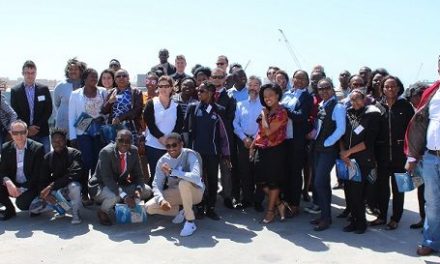
Chinese businesses still practicing cheap labour
 Chinese businesses in Namibia are notoriously known for their exploitive labour practices. Located at the Northern Industrial area, China Town is a busy market with over 50 stalls, each of them employing at least two employees. The majority of the employees are women. Most of the employees at these businesses earn a mere N$300 basic salary with no additional benefits.
Chinese businesses in Namibia are notoriously known for their exploitive labour practices. Located at the Northern Industrial area, China Town is a busy market with over 50 stalls, each of them employing at least two employees. The majority of the employees are women. Most of the employees at these businesses earn a mere N$300 basic salary with no additional benefits.
According to some employees who spoke on condition of anonymity, their employers threaten to fire them if they complain of the low wages. “I have been working here for over six years now and I still get paid N$300 and sometimes N$400 if I have worked during lunch and Sundays,” said one distressed employee. She added that the popular response they get when they ask for salary increment is: “if you don’t want you can go, Namibia has a lot of poor people.”
These employees claim that they are not paid for the extra hour when they work through lunch and they are also not allowed to eat on the job during lunch.
Another employee the Economist spoke to, who claim to be the representative of all employees at China Town, said that some employees are too soft and do not push for their rights.
“Some people don’t even get lunch hour, but no employer should force people to work during lunch,” said the ‘representative’. He said he gets a salary of N$1600, but unfortunately not everyone else is as lucky as him.
He also stressed that when their union, the Namibia Food and Allied Workers Union (NAFAU) collects their monthly fees, the workers try to communicate their problems to them but they keep making empty promises. The last time he recalls having a meeting with the union was in 2006/7 he said.
Another employee also stated that when they have doctor’s appointments and there are many customers on that day, they are forced to miss their appointments or risk losing their jobs.
The ill treatment of employees and the selling of illegal products are also some of the problems the employees mentioned.
When contacted for comment, NAFAU secretary general, Kiros Sackarias said he could not respond to the questions adding that he first has to consult his people on the ground to confirm whether the issues cited by the Chinese employees are true or not. “This is tough for me to answer. It’s not fair to respond to questions like this without consulting my people on the ground,” said Sackarias . He also added that there were issues in the past but they were addressed.











































